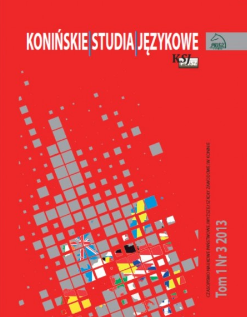Oral corrective feedback and learner uptake: The Turkish EFL setting
Oral corrective feedback and learner uptake: The Turkish EFL setting
Author(s): Hilal ErgülSubject(s): Foreign languages learning, Language acquisition, Pedagogy
Published by: Akademia Nauk Stosowanych w Koninie
Keywords: corrective feedback; error correction; negotiation of form; negotiation of meaning;
Summary/Abstract: Different oral corrective feedback strategies yield different results in different language classrooms. The factors that play into making feedback more effective are still under scrutiny in the field of second language acquisition (Ellis, 2015; Loewen, 2013; Mitchell, Myles, & Marsden, 2019) despite oral corrective feedback being a staple language teaching move that promotes L2 acquisition (Ellis, 2015, 2017; Gass & Mackey, 2015; Li, 2010; Nassaji, 2016; Norris & Ortega, 2000; Russell & Spada, 2006). Over 15 hours of data collected in the Turkish EFL setting from seven intact classrooms were analyzed following the research questions and analytical framework developed by Lyster and Ranta (1997). Findings of this replication differed from the original study in terms of which feedback types are most effective, which reinforces previous findings that different cultural settings may contribute to determining whether the initial error gets corrected by learners. Most notably, results indicated that recasts were not only the most frequent but also the most effective teacher feedback strategy in eliciting student repair in this setting, while output pushing strategies remained as the only viable options for the negotiation of form.
Journal: Konińskie Studia Językowe
- Issue Year: 8/2020
- Issue No: 2
- Page Range: 165-184
- Page Count: 20
- Language: English

